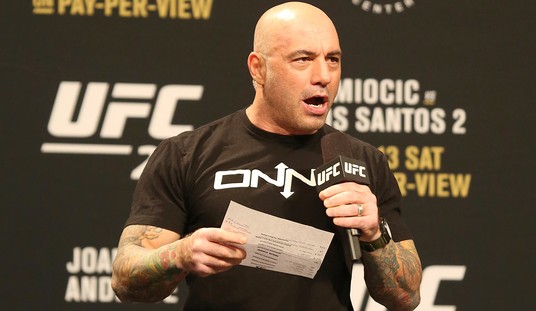A fairly good indicator that Rick Perry will make a strong general election candidate is the desperation you can smell in the left’s opening salvo of attacks against him. The early leader for the genre’s exemplar is this piece from the formerly proud The Atlantic (which has sadly been reduced to a gay gossip site and anti-Semitic conspiracy newsletter). The author, Kathleen Kennedy Townsend, first attempts lamely to argue that Rick Perry’s private prayer session from last Sunday was unconstitutional because it was Christian, a contention so stupid that even Doug Mataconis would not make it. However, Townsend’s heart is not really in that contention, so Townsend moves on quickly to her second (and contradictory) point: that Rick Perry is not really a Christian at all.
The press has traditionally been unwilling to question politicians about their religion. But in Perry’s case, Christianity is front and center on his platform. I hope David Gregory will ask him some of the following questions when he next appears on Meet the Press, and that other members of the media won’t shy away from them either.
Townsend’s contention that “Christianity is front and center on his platform” is completely unsupported by any evidence other than the fact that Perry led a prayer in which Christ was mentioned. In this respect he is completely indistinguishable from literally every single President who has ever served in the history of the nation, including Obama, Clinton, and Carter. There’s certainly nothing unusual or unprecedented about Rick Perry’s willingness to pray in public such that his faith is subject to more criticism than would normally be appropriate, but that is ultimately beside the point. Townsend’s criticism shows that she has no understanding whatsoever of what Christianity requires of the Christian, and her criticism is completely without merit. As you might have guessed, Townsend’s contention is that Perry is not Christian because he is not very socialist:
I see a fundamental inconsistency between Perry’s concerted opposition to government social programs and his promotion of himself as a Christian politician. When asked about the impact of Texas’s low-tax, low-service policies on the poor, he suggested that people who wanted more government services could find them in New York or California.
Christ teaches us to feed the hungry and care for the sick, not to abandon them. Perhaps Gov. Perry hasn’t read that part of the Bible where Christ admonishes us to care for “the least among us.”
Townsend is correct that Christ did indeed admonish Christians to feed the hungry and care for the sick. In fact, that is one of the central responsibilities of Christians. The entire point of this admonition, if one reads further into the passage, is that in so doing, the Christian reflects the heart of Christ by selflessly giving of him or herself to others. Supporting government services to the poor, however, reflects something a little different: a complete unwillingness to sacrifice one’s own money for the poor, in favor of having the government take it from other people (read, the “rich”) and give it to the poor. It takes a cynical heart completely unfamiliar with the teachings of Christ to suggest that God would be pleased with a no-cost vote for confiscatory taxes on other people to pay for the poor.
Townsend has a leg up on most social justice liberals, in that she at least acknowledges that this fraudulent interpretation of Jesus’ teaching is not without controversy:
Maybe he believes, like some socially conservative evangelicals, that these passages refer only to personal charity, not government programs. But I don’t see any place in the Bible that says we shouldn’t use all the tools we have at hand to help the poor, the sick, and the hungry.
The main reason most conservative evangelicals believe those passages refer only to personal charity is that by the plain language in the passages, they refer only to personal charity. Fortunately, we are not left to wonder whether a Christian can discharge his responsibility to God through the expedient of paying taxes, as Jesus was somewhat clear on the “render unto Caesar the things that are Ceasar’s, and unto God the things that are God’s” thing.
The Christian’s obligation to personal charity is a point on which Christ was repeatedly explicit. However, the appropriate size and scope of the government is a question on which the New Testament is wholly and completely agnostic. And year after year, the evidence conclusively shows that Republicans, who are generally in favor of smaller government, are consistently vastly more generous with their giving to charities, who are invariably more efficient in helping the poor in any case.
The truly astounding thing, however, is that liberals are already so desperate about Perry that they are willing to embarrass themselves by at the same time falsely claiming that he’s pretending that Jesus is on his side, and at the same time attacking Perry by pretending Jesus is on their side. This is the sort of independent-alienating derangement that liberals usually don’t feel comfortable showing in public until someone has already been President for three or four years – which I suppose should be taken by Perry as something of a positive.














Join the conversation as a VIP Member